|
By Michael Asiffo Asian activists, actors and journalists have made a huge impact in Canada. Unfortunately many of their achievements do not get sufficient coverage in mainstream media. In this VIBE TALKS interview, Correspondent Michael Asiffo speaks with Toronto based Activist and Filmmaker, Paul Nguyen. Paul has achieved numerous awards including Paul Yuzyk Award for Multiculturalism, William P. Hubbard Award for Race Relations, Heritage Toronto Award, Canadian Ethnic Media Association Award, National Ethnic Press and Media Council of Canada Award, and the Ontario Medal for Good Citizenship. Paul is also the founder of Jane-finch.com, a website established to help clear the ‘rough neighbourhood’ image of the Jane and Finch area. Michael: So I have to ask - does it ever get so surreal? Because when you're accomplishing all these accolades like: 'Wow, I'm proud.’ Paul: It's a funny thing I don't regard myself as an activist per se, I just always see myself as a kid from the hood. When you grow up in Jane and Finch, you know it's not you very easy to get a big head, there are a lot of people who will keep you grounded. So, it's natural for us to be humble and not think too much about those things. Michael: So I guess my next question would be you obviously grew up in Jane and Finch you got your start there. So, how did that kid from Jane and Finch get into filmmaking? Paul: My best friend was a black kid who was my next door neighbour and then one day we were like: ‘What we are going to do during summer days?’ So my dad had a camcorder and we kind of stole it and we start making Kung Fu movies because we were into the martial arts scene and all that stuff. We were filming things around the hood on the weekends and I got my love for filmmaking through that. Michael: A lot your films that are successful in the realm of short films, is there something about that genre that allows you to get your vision out a lot more properly than other genres? Paul: Well, shorts are a nice way to cover a lot of different topics; it is also far more economical. I like using the digital medium. I created my website a long time and we relied on the free platform such as YouTube in that way. It is an easy way to get in that world. Michael: Speaking of which, I wanted to kind of combine your history in film and your past. Because what you have done for the Jane and Finch community specifically, especially for me being familiar with the area, is something that does not get reported in the mainstream but everyone knows about. Talk about this project (jane-finch.com) and why did you decide to do this? Paul: Like most people, especially in the area, I grew up knowing my neighbourhood through the media and through what other people have told me. But it was not the same thing I have experienced personally growing up in the area. So I was curious one day and I went on the Internet and searched up ‘Jane and Finch’ to see what was out there. Surprisingly at the time, there were no resources or definitive website about it. So I thought: ‘Okay, maybe I will be the first guy to start a website.’ Our roots are founded in hip hop and Rap music videos, that is what we started doing in the beginning. We got a lot of attention back in the day and it grew from there. So we started covering social issues and getting more people on board and having all kinds of views and perspectives showcased on the website. Michael: Paul, let me ask you this: A lot of people have made the point that the media does not give the area Jane and Finch proper representation. Do you see that point or is it just a lack of resources? Paul: I think the news, if that is what you refer to as media; I mean they are doing their job. If there is an issue or an incident, they have to come on and report it. So unfortunately a lot of positive stories do not get captured or do not get picked up. So what I have done is use my website as a counterpoint to the mainstream and offer up a lot of some more of the positive stories that happen in our neighbourhood. We have a lot of great residents, great events, all kind of talented people and I try to capture those stories through my website. Michael: Do you see any other area that may need a person like you to step up and show the positive nature of that area? For example, I know Regent Park has gotten a bad reputation but it is right off the coast of Yorkdale so it cannot be that bad. Paul: I think there are a lot of initiatives that are popping up. Especially in Regent Park, they do have the Regent Park film festival and I know they had a digital media program for a lot of young people who were producing things from that area. I think it is great, especially these days you have social media, YouTube, Vimeo and all these free platforms. Also, the cost of getting into filmmaking is not as high as much as before so any anyone can buy a DSLR a basic laptop and get your story out there. Michael: You mentioned that the cost of filmmaking is definitely lower than it was before. There have been arguments for both sides of it being positive or negative. Where do you stand on that spectrum? Paul: So it democratizes access, so everyone can do it and that is a pro. A con is there is a lot of noise now on the internet. So a lot of not so great things (are said), or things that are not well researched or things with questionable quality. So I think now that we have a lot more people producing things, I think the audience has to become a lot more aware on how to find out what content suits them. Especially in the realm of these days, we have fake news and that is a buzz word right now. So I think we need better awareness and when people are consuming media, they know what the source is and the credibility behind it. I think what is good about my website, because we have been around for a long time; we have built up the credibility over the years. So when people see a piece of content produced by us, they know it comes with some sort of journalistic standards or some quality control behind it. Michael: Do you think streaming services like YouTube or Vimeo should have some sort of standard or background check before you can upload? Paul: I definitely do not agree with that. For me personally, I have always been on the side of freedom of speech. In the past we had volunteers for my website and we had different views on certain things but I would always make sure their views were heard. One of the proudest aspects of my website is that we have diverse opinions and diverse people and they are all given a voice or given their airtime on the website. So I am thinking access to those services should be for everyone, it should not be discriminated against but now it will be up to the person to prove themselves. If they want to make content, if they want to capture an audience then they will obviously have to have something special and unique to offer. Michael: Growing up as an Asian kid in Jane and Finch did you ever encounter any stereotypes? Paul: Yes, all kinds of stereotypes. Walking around the hood, I had some dudes drive by and say: ‘Hey (expletive) get out of the way!’ But it is just words, you get used to it. Of course, it is not right but you know, especially growing up in that neighbourhood, you juggle with all kinds of stereotypes. With Asians, you hear we are good at math and we are good at Kung Fu, which is not necessarily true. My best friend is a Jamaican guy and he is actually a black belt Taekwondo master so he would defy the stereotype. If you look at him you would not assume that right. So I think people in the neighbourhood and growing up in that kind of environment are more aware. I do not think they are as judgemental but it is outsiders of course that put the stereotypes on us. But it nothing new, we just roll with the punches and do our best to show who we really are and I think that is the best characteristics about people from Jane and Finch. We are open and candid and you do not find that many fake people in the neighbourhood. Michael: Just to build off that point, do you see kind of a change in people’s perspectives? I think Canada has grown a little bit in terms of being more aware of other people’s culture and not necessarily assuming things. Have you seen any kind of changes in how people are received in the Jane and Finch area or outside the area? Paul: I think stereotypes are still unfortunately very common and very serious. I am thinking with more access to information and people are more understanding because there are more opportunities to get this information. Like having a website like Jane-Finch.com for example and being on Facebook and having access to YouTube so people can get a lot more information. So I am thinking slowly we are breaking down the barriers but there is a lot challenges that we have to fight.
For more information on Paul Nguyen and Jane and Finch. |
Recent Posts
Categories
All
Archives
February 2022
|
|
GET THE APP!
Listen to VIBE 105 anywhere you go!
|
OUR STATION
|
TUNE IN RADIO
|
STAY CONNECTED
|
Copyright © 2021 Canadian Centre for Civic Media and Arts Development Inc. Except where otherwise noted, presentation of content on this site is protected by copyright law and redistribution without consent or written permission of the sponsor is strictly prohibited.


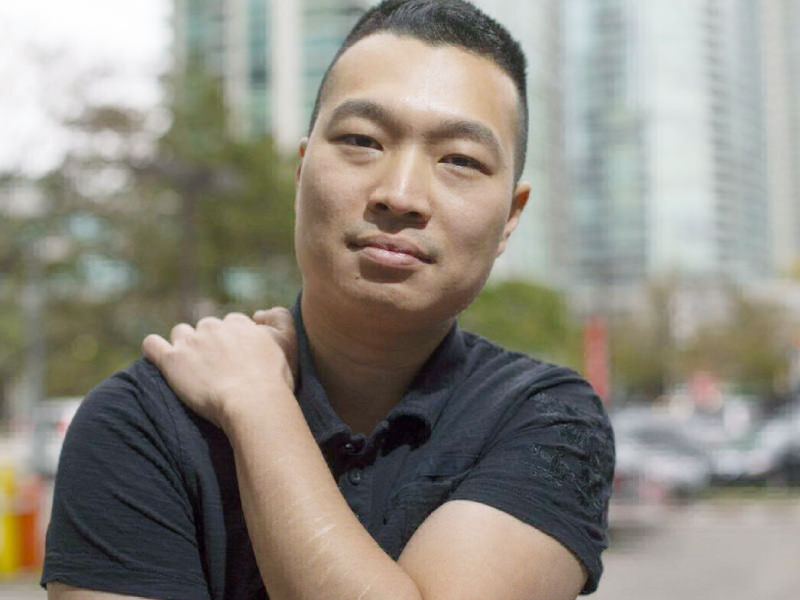
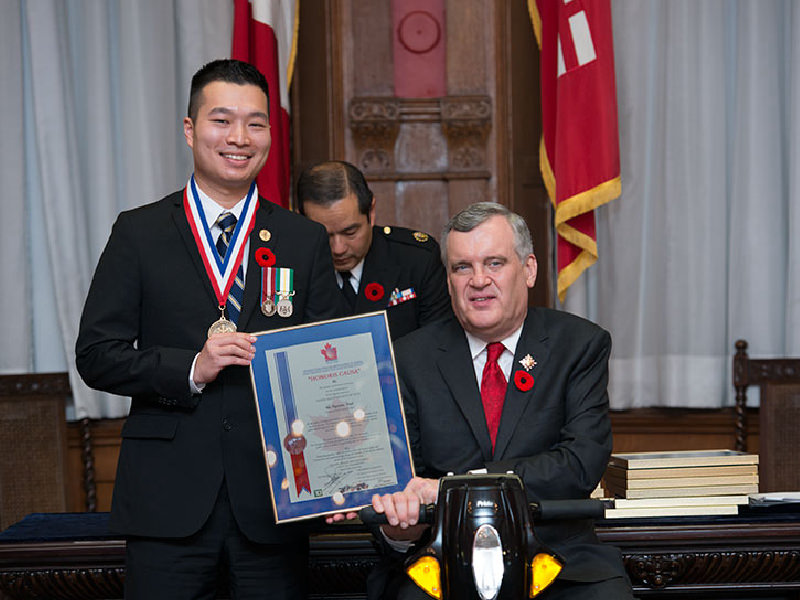
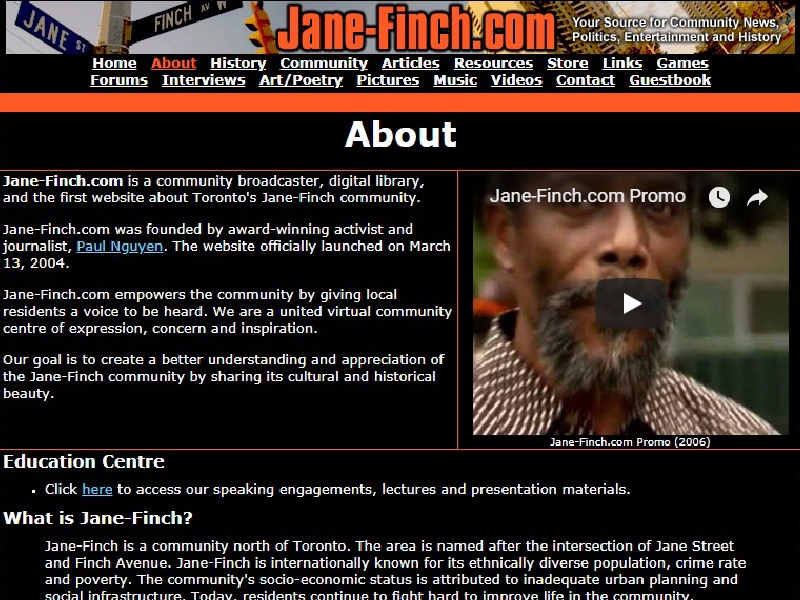
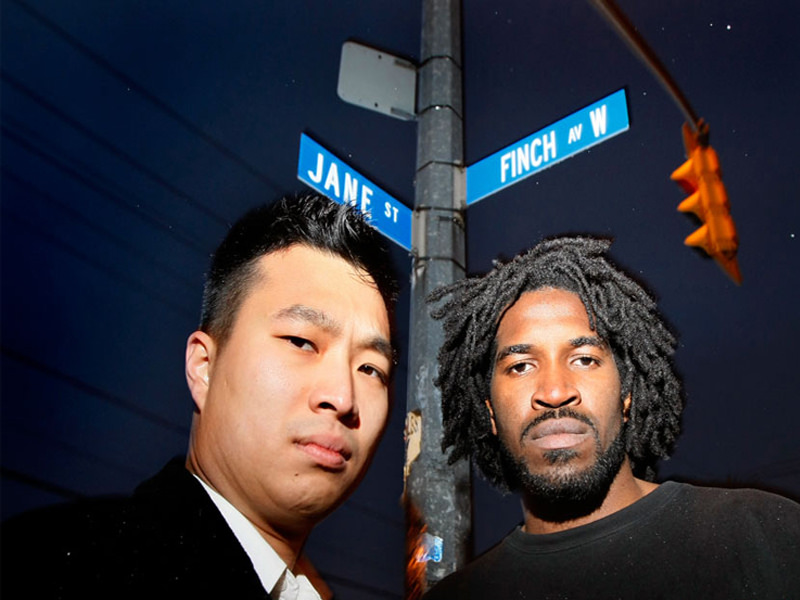
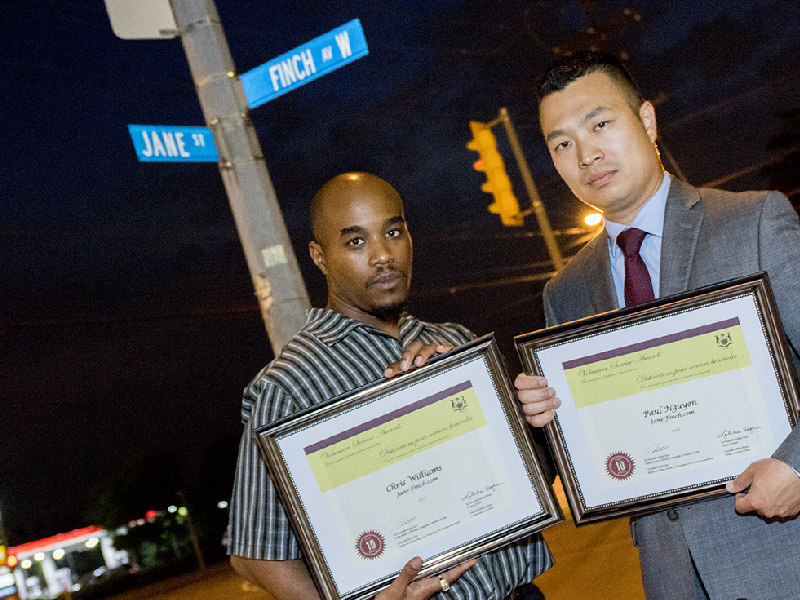
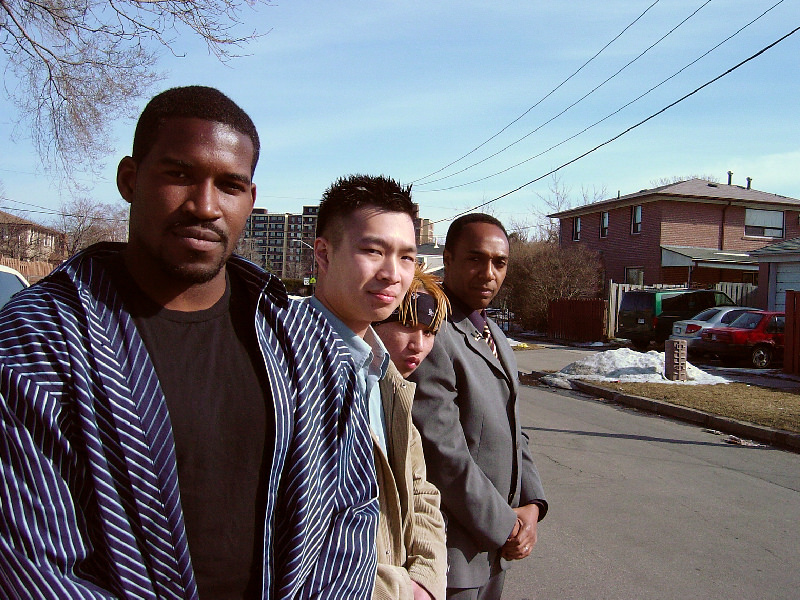
 RSS Feed
RSS Feed


